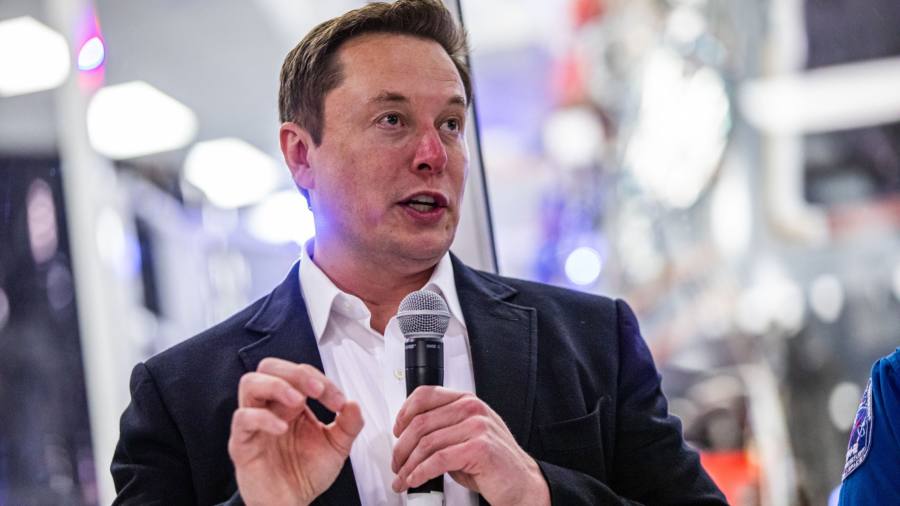
A world of rock bottom interest rates helped to create the Elon Musk empire. Could the 2022 reversal in monetary policy bring it all crashing down? Securities filings this week revealed he sold another $3.6bn of his Tesla shares. The US electric carmaker’s stock price has fallen 61 per cent this year.
In the past year, Musk has sold about $40bn of shares to pay a personal tax liability on options exercises and fund his $44bn purchase of Twitter. That acquisition also required $13bn of pricey leveraged buyout debt. The attendant $1bn of annual interest expense looks unsustainable. One research firm, Insider Intelligence, estimates the social media app will shed about a tenth of its global user base in coming years. Advertisers are nervous.
Twitter’s capital structure has naturally attracted scrutiny. But the platform does not have an equity value problem so much as an enterprise value problem. Even if all the debt was retired, the loss in advertising revenue could crush operating profits. Musk would still have to fund those losses even if there was no interest expense.
Then there is the matter of Musk’s own personal balance sheet. According to a proxy statement with data up to March 31, he owned about 500mn shares of Twitter outright along with 270mn in exercisable options. Tesla allows executives to borrow against a quarter of the value of their stock. Musk had done so against 270mn shares.
Is Musk facing margin calls amid the collapse in Tesla’s share price? Reports recently suggested he was considering replacing expensive Twitter debt with cheaper personal margin loans. But debt is still debt.
Meanwhile, Tesla shareholders are increasingly frustrated that their fortunes are tied to Musk’s extra curricular activities. There is no easy exit route. The billionaire has suggested that he can turn Twitter into a valuable super app. But his interest seems more focused on his own politics and grievances, not profits.
Tesla has a healthy enterprise value equivalent to four times 2023 estimated revenue. But high interest rates, a slowing economy and Musk’s online antics will not help consumer demand. The best option may be to seek breathing room. Musk still owns $70bn worth of the carmaker’s shares plus more in options. Selling enough to buy out Twitter debt, likely available at a steep discount, is the place he should start.
Our popular newsletter for premium subscribers is published twice weekly. On Wednesday we analyse a hot topic from a world financial centre. On Friday we dissect the week’s big themes. Please sign up here.